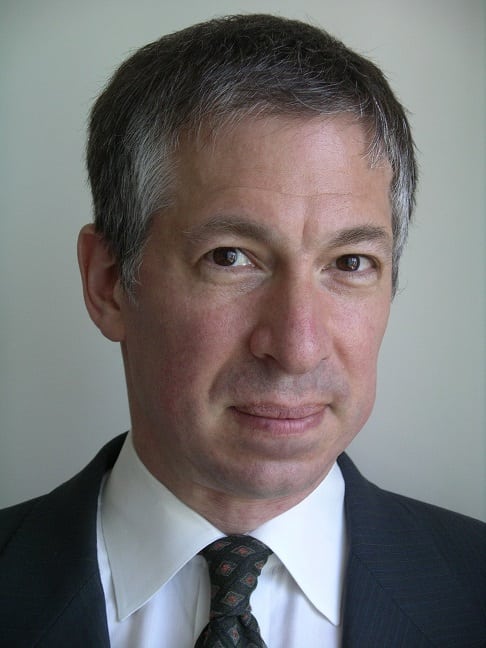BY RATTAN MALL
“We seized more than 400 passports where the biopage was substituted”
DOCUMENTS obtained by well-known immigration lawyer Richard Kurland, who runs Canada’s leading immigration publication, Lexbase, expose a raft of frauds that the Canadian High Commission in India, Canada Border Services Agency (CBSA) and Canadian police have had to deal with.
A document titled “International Network – India TRV [Temporary Resident Visa] Risk Analysis and Matrix December 2017 Birth Certificates,” states: “Birth certificates are issued inconsistently across India, with considerable variations between and within states. Anecdotal information gathered shows that in some cases, refugees in India born in Tibet may have been issued with Indian birth certificates on arrival in India. India’s citizenship laws have been progressively tightened. For example, those born in India between January 1950 and July 1987 were automatically granted citizenship; those born between July 1987 and December 2004 were granted citizenship if one of their parents was also an Indian citizen at the time of their birth; and those born after December 2004 were granted citizenship if both their parents were citizens, or if one parent was a citizen and the other was not an illegal migrant at the time of birth.”
REGARDING ‘actual trends on document fraud,’ a document reads: “Identity fraud is a significant risk in the Indian caseload given how easily genuine documents with fraudulent details can be obtained. A range of sources suggest that the manufacture and use of fraudulent documents is prevalent in India, especially for immigration purposes. Examples of fraudulent documents include civil registry documents, curriculums vitae (CVs), letters of employment, financial documents, educational qualifications, newspaper articles, political party registration, and even websites created specifically to reinforce other documents. The absence of a centralised national identity database compounds this problem.”
It adds: “Although there are no classes of documents which are not open to fraud, some types may be more reliable than others. Passports are generally relatively more difficult to forge than other types of identity documents. However, genuine passports can be issued using fraudulent information; we seized more than 400 passports where the biopage was substituted. Another example of passport fraud, in May 2013, India’s Ministry of External Affairs revoked 127 passports issued to Sri Lankan nationals residing in Tamil Nadu. The passports were issued on the basis of false supporting documents.”
It also notes: “Document fraud is a significant industry in India. Complete packages of fake documents can be arranged and provided by an organised network of professional agents (ghost consultants).”
REGARDING “Organized Fraud Trends”:
Bengaluru “Psychic Couples” Fraud Group:
“Toronto Police charge man for pretending to practice witchcraft after victim pays $101K to remove evil spirit”
“Missions in India have seen a long-term trend of suspicious TRV [Temporary Resident Visa] applications from Bengaluru that appeared to consist of bona fide travelers, but where there were suspicions that their businesses could not be as profitable as claimed. In November 2016, RAU [Risk Analysis Unit] conducted an investigation, consulted like-minded missions, and created profiles after a large number of cases fitting this profile were received. Although the applicants appeared to be genuine visitors, RAU found that several applicants’ telephone numbers were for astrology and related services.
“During RAO [Risk Analysis Operation] site visits to businesses, it was noted that some were co-located with astrology firms. Employment checks made by like-minded missions revealed similar information, and close scrutiny of passports showed most of these people held passports with altered Indian entry and exit stamps, presumably made to conceal the length of their trips aboard. The investigation indicated that the “Psychic” syndicate in Bengaluru had been operating for at least 11 years; they were well organized and sought to illegally work abroad and repatriate the profits.
“Based on the best information collected, it was concluded that these applicants were working illegally overseas in the fields of astrology, palm reading, fortune telling and “witchcraft”. This assumption was later confirmed when an Indian applicant fitting this profile was arrested in Canada on March 30, 2017.
“The news reported that “Toronto Police charge man for pretending to practice witchcraft after victim pays $101K to remove evil spirit”. From November 2016 to April 2017 a total number of 309 applications associated with this group were refused. RAU retained 97 of the passports that contained counterfeit/altered Indian entry and exit stamps and/or page substitutions which concealed evidence of long absences from India. Only three requests for a return of these passports have been received. As of May 2017, Canada no longer receives applications that fit this profile, indicating that this syndicate has been at least temporarily deterred from seeking TRVs.”
* Shivam Vishwa Hospital [Bengaluru, Karnataka] – Improperly issued letters of employment:
“She signed 29 improperly issued employment letters … mostly medical lab technicians and nurses”
“During routine telephone verification, an RAU LES [Locally Engaged Staff] was successful in having an employee disclose the extent of fraud that was being committed by her employer. The employee said that she was coerced into signing “fake” employment letters by her employer/owner of the hospital. She advised she signed 29 improperly issued employment letters, knowing they were incorrect. These were mostly medical lab technicians and nurses. Through further investigations using LinkedIn and other sources, RAU found another 13 people had suspected counterfeit employment letters from this employer. A like-minded mission was informed of this hospital.”
It adds: “RAU later undertook a field investigation to this hospital and viewed the employment registers. RAU found that none of the 6 people, who applied under the Federal Skilled Worker category, were listed in any of the attendance registers according to the employment dates on the letters they provided. It was further found that an undisclosed number of improper employment letters were issued to persons seeking to work in the United Arab Emirates and other countries. Since this visit, neither Canada nor any of the like-minded missions have received letters from this hospital.”
* Canadian Academic English Language (CAEL) Assessments – organized student fraud:
“CBSA issued arrest warrants for 41 of these people, who had already arrived in Canada”
“In 2015, RAU discovered 57 student cases that had submitted similar counterfeit documentation and were ultimately linked to an organized fraud syndicate operating in Gujarat State. CBSA issued arrest warrants for 41 of these people, who had already arrived in Canada. During 2017, six of these students sought by CBSA were arrested in Canada attempting to enter USA. In May 2016, the RAO spoke with a representative of CAEL and advised him that his firm would need to contact IRCC [Immigration, Refugees and Citizenship Canada] headquarters to discuss, which they later did. During the call the RAO asked if he would provide the names of the agents his firm had used in India and how CAEL was structured in India. The representative refused to provide any information but indicated he would be in contact with IRCC Ottawa.”
* Uttarakhand School Board – organized student fraud:
“None of them could converse in English whereas their IELTS scores were 6.5 and higher”
“During August 2016, RAU and processing staff detected similar counterfeit and altered educational documents in 72 cases from students living in the same Indian town of Udham Singh Nagar in Uttarakhand. The RAO made contact with Uttarakhand School Board authorities, who confirmed all the purported documents from their school board were counterfeit because they did not have the correct information including incorrect ‘roll numbers’. All related cases were identified and none of them were granted student TRVs. 12 students stated that they had hired consultants to prepare their application packages. All claimed to have obtained English language training from different private institutes but none of them could converse in English whereas their IELTS scores were 6.5 and higher. RAU established direct contact with reliable staff working for the Uttarakhand School Board. Since August 2016, no further student applications with similar fraudulent package have been received.”











